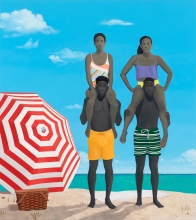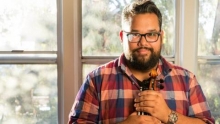
Rena A. Cohen
Adaptation and Reimagination: Engaging Youth in Arts and Social Justice Virtually
Posted by Jul 30, 2020

Rena A. Cohen
As public health guidelines limited social gatherings and encouraged social distancing, arts education and social justice programs needed to reconsider their traditional in-person activities—creating a collaborative activist mural, for example, or performing an original play—for the safety of their communities. How did they bring together young people in meaningful, socially engaged arts experiences without being together physically? I had the opportunity to speak with representatives from three organizations who have fearlessly navigated the complicated world of re-envisioning onstage performances, keeping students of various ages engaged over Zoom, and creating a sense of community among young people who may have never met in person. In their interviews, each leader explained how their organization has adapted and reimagined programs to engage youth in arts and social justice virtually and offered insight on how your community can do the same.
Read More



















